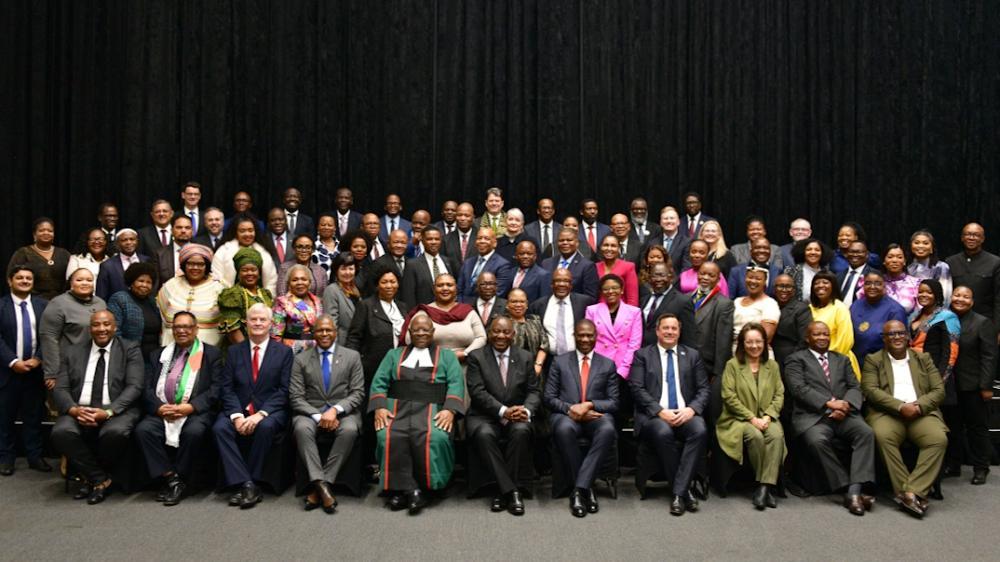Africa-Press – South-Africa. Deputy ministries are a training ground for future ministerial positions, President Cyril Ramaphosa said, defending his bloated executive in parliament.
During a question-and-answer session, Ramaphosa stated his appreciation for the work of deputy ministers, saying that they were doing a good job.
This, as some parties have criticised Ramaphosa over his bloated executive, which includes 43 deputy ministers who cost the fiscus more than R94m a year in salaries alone.
“I see the real value of deputy ministers, if truth be told, I appreciate the inputs and the commitment that they demonstrate, and in many ways, deputy ministers’ positions can also be seen as a training ground for future ministerial positions. That’s how I look at it. So, they are doing a good job. And we may not see the value that they do. I see great value,” he said.
A handful of deputy ministers have graduated to ministerial posts in the Ramaphosa presidency. The latest is Buti Manamela — a long-standing deputy minister who was promoted to higher education minister after the Seta scandal.
ActionSA has tabled a constitutional amendment bill to abolish deputy ministers.
Ramaphosa said his wish had been to slash his cabinet; however, this was thwarted when he had to accommodate other parties in the GNU. He said the size of the executive is a result of the outcome of the elections.
“I would want a much smaller executive. I would also like fewer deputy ministers. But right now, we do have deputy ministers who are really putting their shoulder to the wheel, who are going even beyond what I would call the call of duty, and those deputy ministers are distinguishing themselves as real contributors to our governance. And what I also really am appreciating is the fact that many of our deputy ministers are working so well with their minister colleagues.”
He defended deputy ministers, saying that they continue to play a critical role in governance. He said deputy ministers participate in cabinet committee discussions and engage in discussions with their directors general and deputy directors general to put proposals that could lead to a project, or an amendment of a law.
“Now the value of having deputy ministers is clearly demonstrated in this whole process. It starts at the department level, and it goes forward to the cluster level and the cabinet committee level, where they engage with other deputy ministers and ministers on the crafting of any position that should lead to either a change or an enhancement of a proposition.
“So cabinet deputy ministers do play a very critical role… they are all participating in a meaningful way, in governance. They are participating in the execution of decisions. They assist ministers, and where ministers are not able to act on a particular project or initiative, deputy ministers assist.”
TimesLIVE previously reported how some departments, such as trade and industry, police, and water and sanitation, have more than one deputy minister. They each earn an annual salary of R2.2m, or a cumulative R94.6m yearly. Moreover, each one is allocated two official residences, in Cape Town and Pretoria, as well as a vehicle for each of the two capital cities.
They are also allowed to hire support staff such as a chief of staff, a media liaison officer and community outreach officers.
For More News And Analysis About South-Africa Follow Africa-Press






